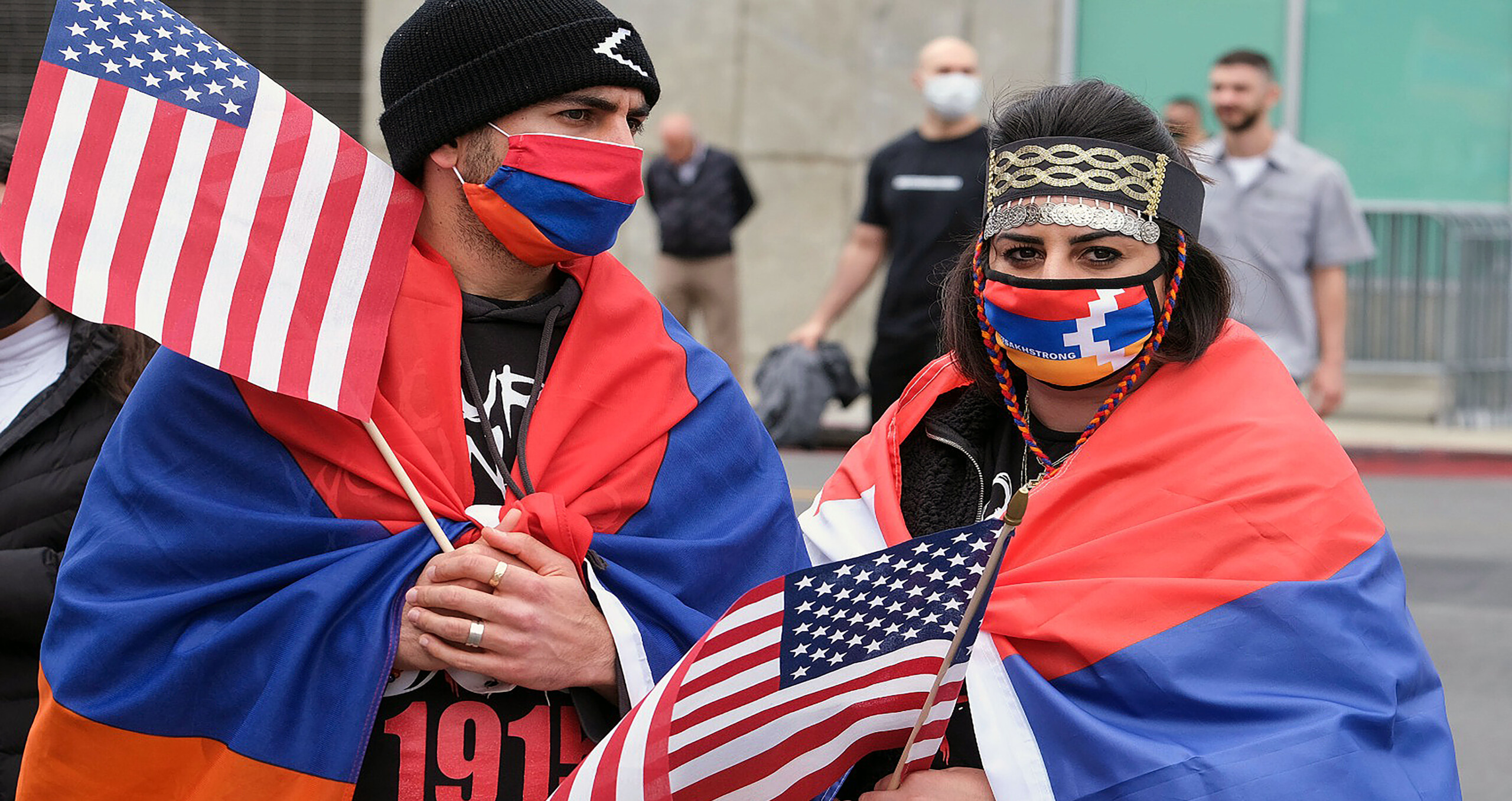Exploring outcomes of Biden’s recognition of the Armenian genocide

People rally for the Armenian genocide’s 106th anniversary in front of the Turkish Consulate, Los Angeles, U.S.A. Photo by Ringo Chiu. (Shutterstock, 2021).
Exploring outcomes of Biden's recognition of the Armenian genocide
On April 24, 2021, United States (U.S.) President Joe Biden became the first American president to recognize the Armenian genocide, on the day of its 106th anniversary (Kucera, 2021). Biden is not the first American president to associate the dramatic events to a genocide. Ronald Reagan did so in 1981 during the Days of Remembrance of Victims of the Holocaust, but only as a passing comment during his speech on the importance of remembering the tragedy that was the Holocaust. However, Biden is indeed the first U.S. president to formally acknowledge the historic events as a genocide. This statement is in line with the policy of the U.S., which have recognized the genocide in 2019 through the American Congress (U.S. Congress, 2019), meaning it was only a matter of time for an American president to officially declare it as such in a statement.
The Armenian genocide happened in 1915 during World War I (WWI), under the hands of the Ottoman Empire, present day Turkey. The governing body of the Ottoman Empire asked the Armenian Revolution Federation (ARF) in August 2014 to help them incite revolts from Russian Armenians at the Eastern Ottoman borders. This was to facilitate their war with the Russian Empire. The ARD refused, claiming that Armenians should fight for the country of their citizenship (Suny, 2015). The refusal led to the massacre of Armenians by the Ottoman Empire military during its invasion of Russia, and future military failures and battle defeats led to the Ottoman Government blaming Armenians and considering them as traitors. Armenian soldiers were disarmed, arrested, and executed alongside Armenian intellectuals in Constantinople on April 24, 1915, marking the start of the Armenian genocide. Armenian civilians were sent on death marches in the Syrian desert, deprived of water and food, and subjected other atrocities such as rape and executions. Survivors of these death marches were sent to concentration camps, suffered additional losses during another wave of massacres, and were then forcibly converted to Islam and displaced in Ottoman Muslim households having Armenians ethnically cleansed (Dündar, 2011). The International Association of Genocide Scholars have claimed that over a million Armenians died as a direct result of the Ottoman government’s actions (Pettypiece, 2021).
A genocide is defined as such under the Articles II of the Convention on the Prevention and Punishment of the Crime of Genocide:
Article II
In the present Convention, genocide means any of the following acts committed with intent to destroy, in whole or in part, a national, ethnical, racial or religious group, as such:
a. Killing members of the group;
b. Causing serious bodily or mental harm to members of the group;
c. Deliberately inflicting on the group conditions of life calculated to bring about its physical destruction in whole or in part;
d. Imposing measures intended to prevent births within the group;
e. Forcibly transferring children of the group to another group.
The Ottoman Empire clearly instigated an Armenian genocide, as there was both the mental element of intent by the Empire to “destroy, in whole or in part, a national, ethnical, racial or religious group, as such,” and the physical element, which was the destruction of millennia of Armenian culture and settlements in the region.
The Turkish government, natural heir of the Ottoman empire, has repeatedly denied the Armenian genocide. This denial has been extended into lobbying in other countries to prevent them from recognizing it. This explains why the U.S. have waited until 2021 to officially recognize it, and why only 31 countries in the world have recognized it (Armenian National Institute, 2021). Historians have explained that Turkish officials have strongly opposed the recognition of the genocide as it laid the foundations of Turkish nationalism, with ideological and political leaders gaining power and wealth through the exactions of Armenians (Zürcher, 2011). Biden’s recognition of the genocide stains the Turkish history and damages U.S.-Turkey relations, which have been at a low since 2019, following U.S. support towards Kurds and the growing Turkey-Russia relations, alongside the anti-Westernism and anti-democratic stances of Turkish President Erdogan (Ward, 2019).
The long-awaited American support towards Armenians allows descendants of the genocide to heal from the historic pain they have gone through. While only a few countries recognize it, the U.S.’s recognition of it might be one of the most important to the ethnic Armenians, as it shows a strong support towards the Caucasus country, which has been seen for the longest time as an enemy of both Azerbaijan and Turkey (Abouyoussef, 2020). Such recognition facilitates the acceptance of the Armenian population’s struggles by having a better understanding of their origins and issues. What remains to be seen, however, is how Biden’s speech will affect Turkish and Armenian relations, and if it will increase the polarization of the historic conflict, or rather, bring the two nations closer.

Article by
Alexandros Messimeris

Categories


